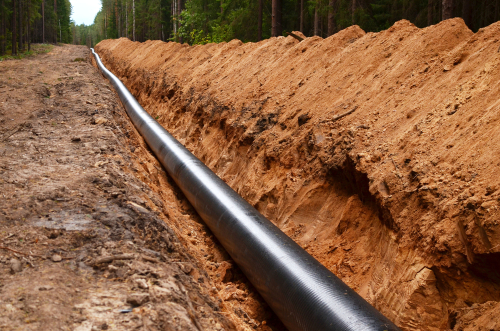
Congressional leaders on transportation from both sides of the aisle and both houses of Congress joined together on Tuesday to commend Congress for passing pipeline safety legislation.
The Protecting Our Infrastructure of Pipelines Enhancing Safety (PIPES) Act of 2020 will reauthorize the U.S. Department of Transportation Pipeline and Hazardous Materials Safety Administration’s (PHMSA) pipeline safety program through 2023 and provides advances in technology and regulatory reform.
U.S. Sens. Roger Wicker (R-MS), Maria Cantwell (D-WA), Deb Fischer (R-NE), and Tammy Duckworth (D-IL) joined Reps. Peter DeFazio (D-OR), Sam Graves (R-MO), Frank Pallone (D-NJ), Greg Walden (R-OR), and Fred Upton (R-MI), in applauding the move.
“A reliable supply of energy is essential to keeping our businesses, communities, and homes running,” said Wicker, chair of the Senate Committee on Commerce, Science and Transportation. “The PIPES Act will improve our pipeline system by advancing innovative safety programs and technologies. I thank my Senate colleagues and House counterparts for working together on this legislation, and I applaud Senators Fischer and Duckworth on a strong bipartisan bill.”
The legislation would provide more resources to state and local pipeline safety officials and increase the number of pipeline inspectors by almost 20 percent. Additionally, the legislation would allow PHMSA to conduct pilot programs to look at pipeline safety technologies innovations while improving due process protections and transparency in PHMSA enforcement proceedings. The legislation would also direct PHMSA to update its current regulations for large-scale liquified natural gas facilities and set a higher maximum penalty for violating the updated regulations.
“This bipartisan and bicameral legislation will help ensure that the millions of miles of pipelines in the U.S. are safe, reliable, and environmentally-sound. I’m especially proud of the provisions that help combat climate change by mandating that companies conduct leak detection and repair programs in order to reduce methane pollution, a greenhouse gas 84 times more potent than carbon dioxide,” said DeFazio, chair of the House Transportation and Infrastructure Committee. “I am also pleased the bill contains significant safety improvements for LNG facilities, gas distribution systems, and more pipeline inspectors, while also rejecting giveaways to industry. Finally, the bill will resolve the Pipeline and Hazardous Materials Safety Administration’s bureaucratic inability to protect coastal waters and the Great Lakes as previously mandated by Congress.”